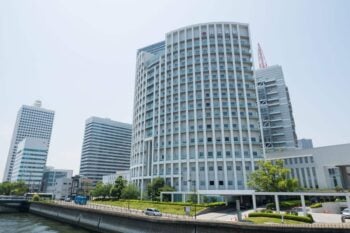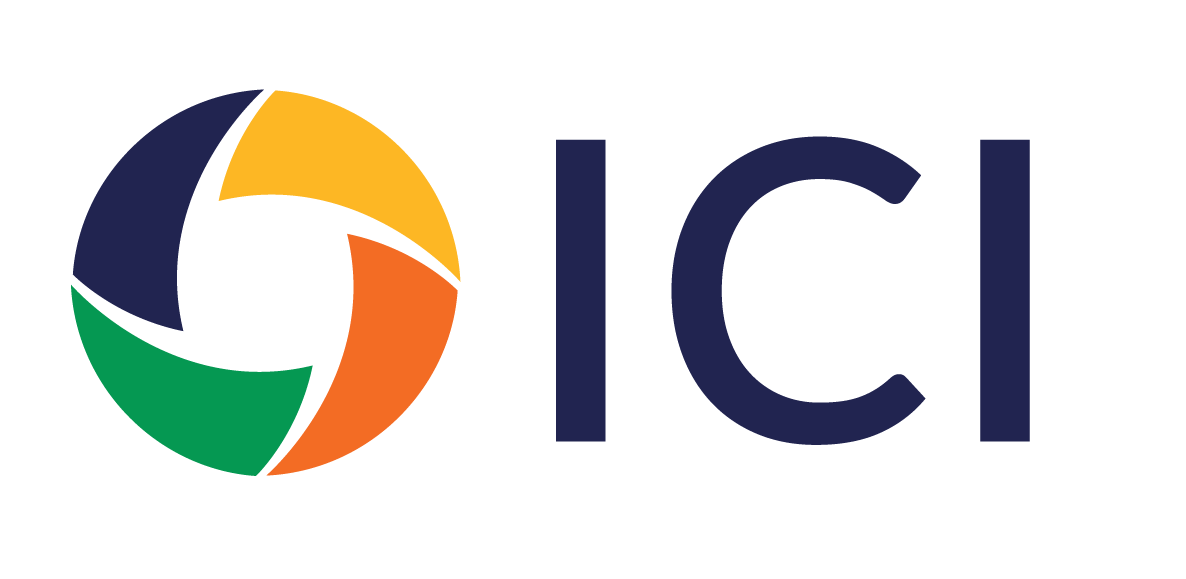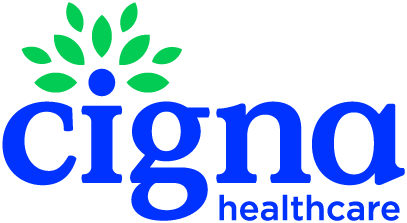
Much standard healthcare in Japan is based at hospitals: doctors, medical specialists, even dentists. Some hospitals are ready to support foreign patients with translation services. But others, especially in rural Japan, need to prepare. Going to the best hospitals in Japan for expats makes it easier for foreign residents and travelers to get the care they need.

Find the Best International Medical Insurance
- Compare multiple quotes and coverage options
- Work with an insurance expert at no additional cost
- Find the best plan for your needs and budget
Does Japan Have Good Hospitals?
Japan has some of the best hospitals in the world. Foreign patients praise them for their cleanliness and advanced treatments. There are nearly 8,500 hospitals in Japan, one hospital for every 15,000 citizens. Note that hospital hours may seem short compared to those for hospitals in the U.S. and Europe. Not all hospitals are open on weekends or holidays. Nor do all hospitals provide emergency or after-hours care.
Japan’s hospitals draw medical tourists who seek high-quality, reliable care. They come for cancer testing and treatment, cosmetic surgery, stem-cell therapies, and more. To support this, Japan provides a medical visa that allows foreign visitors to be in Japan for health care purposes for up to one year. Most visitors coming for treatment at Japanese hospitals and clinics use a standard tourist or business visa.
While foreigners usually have good experiences at Japanese hospitals, they do face challenges there. Almost all hospitals in Japan ask foreign patients to contact them in advance before seeking treatment. That’s because staff at hospitals may not speak your language, and the hospital needs to provide translation services. If you can, bring a family member or friend who speaks Japanese to an appointment with a new medical provider.
The Japanese health system acknowledges these challenges and seeks to improve them. To support care for foreigners, there are several accreditations for international hospitals in Japan. Japan Medical Service Accreditation for International Patients (JMIP) accredits hospitals and clinics that have good support for foreign patients. So does the Joint Commission International Quality Check (JCI).
What Are the 5 Best Hospitals in Japan?
The following hospitals meet the strict standards of Newsweek’s World’s Best Hospitals list. They also have international accreditation. All links below are to the English language version of the hospital websites. Hospital phone numbers are for phone lines that provide English help.
St. Luke’s International
9-1 Akashicho, Chuo City, Tokyo
+81 3-3541-5151 or for appointments +81-3-5550-7120
International department email: 5931@luke.ac.jp
St. Luke’s in Tokyo provides English-language phone support and emergency care. St. Luke’s has multiple quality accreditations, including with the JCI and for international nursing care.
Center Hospital of the National Center for Global Health and Medicine, Tokyo
1 Chome-21-1 Toyama, Shinjuku City, Tokyo
+81-3-6228-0749
support@hosp.ncgm.go.jp
Center Hospital is accredited with the JMIP. Their website also includes information for international patients. While they provide emergency care, you should contact them in advance to be admitted if you are able. They also have a travel clinic focused on medical services and vaccines for international travel and visas.
Kameda Medical Center
929 Higashicho, Kamogawa, Chiba
Emergency +81 4-7092-2211, appointments +81 4-7099-1111
This hospital is also accredited with the JCI. They provide emergency care and multilingual translation services. For other appointments, call or apply with their Inquiry Form for International Patients.
Kyushu University Hospital
3 Chome-1-1 Maidashi, Higashi Ward, Fukuoka
+81 92-641-1151
Accredited with the JMIP, Kyushu University Hospital’s International Patient Support Center has been helping foreign patients since 2005. They provide a Hospitalization Guide (pdf format) for English-speaking patients.
Nagoya University Hospital
〒466-8560 Aichi, Nagoya, Showa Ward, Tsurumaicho
+81 52-741-2111
Another world-class hospital in Japan, Nagoya University Hospital is accredited with the JCI. They provide emergency and standard care. For standard care they ask that foreign patients contact them in advance, as described in their foreign patient guide.
How Can Expats and Visitors Access Hospitals in Japan?
Most healthcare in Japan is based in hospitals. Specialists, who are often preferred for efficient treatment, are usually found there. If you are in Japan long term, you can sign up with a GP or family doctor and register with a local hospital. You can even do this while using international health insurance. Registering with a local hospital makes it faster for you to get admitted in an emergency.
Call Before You Go To The Hospital In Japan
Hospitals in Japan often ask that foreigners contact the hospital before seeking healthcare. This is important. Not calling, or not having someone call for you, may delay your treatment even in an emergency. If you are fluent in Japanese, or you are bringing your own interpreter, you can let the hospital know when you call. Some Japanese hospitals ask you to provide a letter of reference. A doctor at a private clinic can set you up with this letter.
In an emergency, you can call an ambulance. The ambulance team will call on your behalf to find a hospital that is open and can take foreign patients. You can also call 119 for a serious medical emergency. For minor emergencies and sudden illnesses, many foreigners will go to an after-hours clinic, where you can show up and be treated after a brief wait.
How Much Does it Cost to Visit a Hospital in Japan?
All hospitals in Japan, both public and private, are not for profit. This means hospital costs are reasonable by international standards.
Ambulance transportation in Japan is free for everybody, including foreigners. If you are a foreigner who does not have Japanese health insurance, you will be charged for the care provided by paramedics. This care charge is usually modest, under $75 USD.
Foreigners visiting Japan have to pay up front for services at hospitals and clinics, including emergencies. This is because foreigners are outside the Japanese health system. Hospitals will not bill your health insurance: you need to keep your own records and arrange reimbursement.
International patients may have to pay additional fees, such as a $20 to $100 emergency room fee. This is on top of the fees for doctors’ consultations, also $70 to $100. An x-ray is usually under $10: a CT or MRI scan, $35 to $50 dollars.
Is it expensive to stay overnight at a hospital in Japan? That depends on the options you choose. If you are an inpatient at a hospital, the daily bed charge ranges from $100 for a shared space to $800 for a luxury private room. You will be charged for meals ($1 to $5 per meal). There may be a surcharge for inpatient care provided to foreigners, often 30 to 50 yen – less than a dollar.
Private after-hours clinics charge slightly higher fees. They average $110 to $200 to see a doctor and receive services like x-rays, medical records, and referral letters for hospitals.
Best Health Insurance Plan for Expats In Japan

Cigna Global Insurance Plan
- Flexible plans tailored to your needs and budget
- 1.5M+ providers in 200+ countries
- 24/7 multilingual customer support
Best Health Insurance Plan for US Citizens Living In Japan

Xplorer Worldwide Medical Plan
- Unlimited annual and lifetime coverage
- Pre-existing conditions covered with prior insurance
- For U.S. citizens abroad or foreign nationals in the U.S.
Recommended Hospitals for Expats in Japan
All of the following international hospitals in Japan have English versions of their websites. Many of them provide English-language phone support. Most of them provide emergency or evening care.
Tokyo
Tokyo has the best medical care in the country and after-hours clinics that can work with foreigners.
Japanese Red Cross Medical Center
4 Chome-1-22 Hiroo, Shibuya City, Tokyo
+81 03-3400-1311
This Red Cross-affiliated hospital has a helpful English-language website and strong emergency services.
Tokyo Medical and Surgical Clinic
32 Shiba koen Building 2F, 3-4-30 Shiba-koen, Minato-ku, Tokyo
Daytime appointments: +81 03-3436-3028, after-hours service, + 81 050-5530-9997
Not a hospital but an after-hours clinic, recommended for their 7 days a week service and English language support. They provide doctor’s visits, hospital referrals, minor surgeries, and appointments to support visas and travel.
Kyoto
Beautiful Kyoto is popular with travelers. Along with hospitals and clinics that support English speakers, the Kyoto City International Foundation can provide medical interpreters for foreigners in hospitals here.
Koseikai Takeda Hospital
841-5 Higashi Shiokoji-cho, Shiokoji-dori
Nishinotoin-higashiiru, Shimogyo-ku, Kyoto
+81 75-361-1351
This JMIP accredited hospital in Kyoto provides emergency care, specialist appointments, surgery, and dialysis. They also have on-site English interpreters six days a week, and interpretation available for 18 languages.
Kyoto University Hospital
54 Shogoin Kawaracho, Sakyo Ward, Kyoto
+81 075・751・3111
Kyoto University Hospital is designated as an Advanced Treatment Hospital in Japan’s medical system. If you need advanced care while in Japan, you may consider getting a referral letter for care at Kyoto University Hospital.
Osaka
Osaka is growing to be an international medical destination. Many of its hospitals are for patients seeking extended treatment. Its independent clinics, while supporting foreigners, provide a premium service at premium rates.
Japanese Red Cross Osaka Hospital
5-30 Fudegasakicho, Tennoji-ku, Osaka
+81 06-6774-5111, for a standard appointment call +81 06-6774-5129
hospital@osaka-med.jrc.or.jp
This hospital in Osaka has 24/7 emergency services and good English-language support.
Osaka University Hospital
2-15 Yamadaoka, Suita, Osaka
+81 6-6879-5111
Osaka University Hospital is JMIP accredited. Contact them in advance to arrange an appointment.
Tokiwa Medical Clinic
1-8-18 Showacho Abenoku Osaka
+81 6-6585-7706
tmc@tokiwamedical.jp
This clinic provides English-language care six days a week to overseas travelers, including emergency and after-hours visits. Tokiwa Medical Clinic can also provide referrals to hospitals.
Yokohama
Yokohama, with its lovely waterfront, is the second largest city in Japan. For many travelers it’s their first experience of Japan outside Tokyo.
Yokohama Municipal Citizens’ Hospital
1-1 Mitsuzawanishimachi Kanagawa-ku, Yokohama-shi, Kanagawa
+81-45-316-4580
This hospital’s motto is “Yokhohama To The World.” They provide emergency, inpatient, and outpatient services, described clearly on their English-language web site. Call to inquire and let them know if you need an interpreter.
Shonan-Fujisawa Tokushukai Hospital
1-5-1, Tsujidokandai, Fujisawa-shi, Kanagawa
+81-466-35-117
international@ctmc.jp
This designated emergency hospital is also JMIP accredited. They offer emergency and outpatient services 24 hours a day, 365 days a year.
Hokkaido
Adventurous travelers seek out the wild beauty and down-to-earth cities of Japan’s northern island, Hokkaido. In its largest city, Sapporo, an excellent hospital awaits.
Sapporo Higashi Tokushukai Hospital
+81-11-722-1110
A JMIP and JCI accredited hospital in northern Japan, with emergency care and in-house interpreters. They have a dedicated international medical support office.
Hiroshima
Hiroshima, a city that suffered during war, now promotes peace and education. Visitors come to Hiroshima to remember and to visit the Peace Memorial Park.
Hiroshima University Hospital
Kasumi 1-2-3 Minami-ku, Hiroshima
+81 82-257-5555
byo-kokusai@office.hiroshima-u.ac.jp
Hiroshima University Hospital has comprehensive medical services, including emergency care and exceptional dental support. They hold both JMIP and Japan International Hospital accreditation. Note their instructions for new international patients.
National Hospital Organisation Fukuyama Medical Center
14-17, 4-chome, Okinogami-cho, Fukuyama City, Hiroshima
+81-84-922-0001
507-kokusaisien@mail.hosp.go.jp
This institution is Japan International Hospitals-accredited. It offers emergency care, inpatient and outpatient care, and international patient support, including translation.

Find the Best International Medical Insurance
- Compare multiple quotes and coverage options
- Work with an insurance expert at no additional cost
- Find the best plan for your needs and budget
Related Articles:
